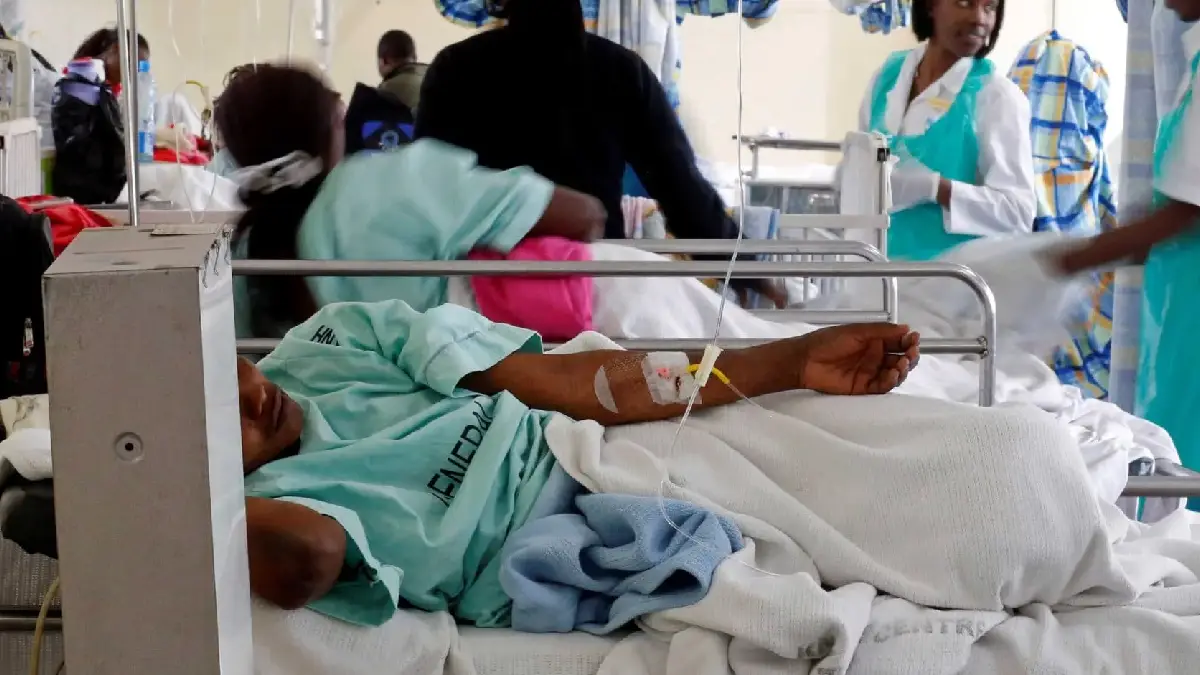
Cholera Outbreak Prompts FG to Source Urgent Vaccine Supplies
In a move to address the cholera outbreak, the Federal Government has commenced talks with the Global Alliance for Vaccines and Immunisation (GAVI) to acquire emergency supplies of oral cholera vaccines (OCV). This initiative arises as Nigeria grapples with the disease amidst a global scarcity of the vaccine.
Dr. Jide Idris, Director-General of the Nigeria Centre for Disease Control and Prevention (NCDC), revealed that Prof. Muhammad Ali Pate, Coordinating Minister of Health and Social Welfare, is spearheading these negotiations with GAVI.
This development follows an announcement by the NCDC that the cholera death toll has risen, and the disease has spread to 32 states and 115 local government areas.
Nigeria employs three WHO-approved oral cholera vaccines: Dukoral, Shanchol, and Euvichol-Plus. Complete immunization requires two doses, which are administered to high-risk groups such as travelers to cholera-prone regions and residents in outbreak areas.
Dr. Idris emphasized GAVI’s vital role in enhancing vaccine accessibility in low-income nations. Through these negotiations, Nigeria aims to secure emergency cholera vaccine supplies to combat the outbreak. “Cholera vaccines are not stored in public health facilities, although they are available in limited quantities privately. However, vaccination alone is insufficient; we must also maintain environmental cleanliness and proper hand hygiene,” he noted.
He also pointed out the global surge in demand for cholera vaccines, leading to a critical shortage. This limited supply has strained efforts to control outbreaks in endemic regions, including Nigeria. Factors such as poor sanitation, inadequate access to clean water, and limited healthcare infrastructure exacerbate the spread of the disease. In response, the NCDC has intensified public health campaigns promoting hygiene and clean water.
However, without adequate vaccination coverage, these measures are not enough. The vaccine shortage has impeded mass immunization campaigns essential for cholera prevention. Dr. Idris stressed the necessity for increased investment in vaccine production and distribution infrastructure, highlighting broader issues of global health equity and preparedness.
He called for enhanced international collaboration to ensure prompt delivery of life-saving vaccines to the most vulnerable populations. Cholera, an acute diarrheal disease caused by ingesting contaminated water or food, remains a significant health threat in Nigeria, leading to numerous deaths and overwhelming healthcare facilities.
In 2021, Nigeria received approval from WHO for over 3.5 million doses of oral cholera vaccines. In 2022, the country requested an additional nine million doses. The effectiveness of cholera vaccines varies, depending on the type and number of doses administered. Experts recommend two doses for optimal protection, with significant immunity lasting at least three years. Young children who receive a single dose may require a booster in the third year.
Nigeria Records 54 Deaths, 1,579 Cases in 32 States — NCDC
The NCDC reported an increase in cholera cases and deaths, with 54 fatalities and 1,579 suspected cases recorded across 32 states and 115 LGAs since the beginning of the year. Dr. Muntari Hassan, Deputy Director of Surveillance and National Incident Manager for cholera, provided an update, noting that while the overall number of cases has decreased from the previous week, the spread remains extensive.
“The situation is worsening in terms of fatalities and the number of affected areas. The most impacted states are Lagos, Bayelsa, Abia, and Katsina. A comprehensive approach is required, including proper sanitation and changing public hygiene practices,” Dr. Hassan explained.
NCDC Activates Emergency Operations
Due to the rainy season, Nigeria remains at high risk for increased cholera transmission. Consequently, the NCDC has activated its Emergency Operations Centre (EOC) to coordinate a centralized response system. Dr. Idris inaugurated the EOC, which includes the NCDC, Federal Ministries of Health, Environment, and Water Resources, WHO, UNICEF, MSF, and others. This multi-sectoral response aims to address epidemic diseases, including cholera.
Decline in Cholera Cases in 2024
In the first eight months of 2023, Nigeria experienced a significant cholera outbreak, reporting over 3,000 suspected cases and 84 deaths across 25 states. In 2024, there has been a 62% reduction in suspected cases compared to the same period in 2023, attributed to effective control measures.
Governor Sanwo-Olu Links Cholera Spread to Poor Sanitation
During the 2024 Lagos International Water Conference, Lagos State Governor Babajide Sanwo-Olu attributed the cholera outbreak to inadequate sanitation and contaminated water. He praised the state’s proactive measures in controlling the spread and emphasized the importance of maintaining proper sanitation.
LASCOPA Directs Stores to Display Product Information
The Lagos State Consumer Protection Agency (LASCOPA) has instructed all supermarkets and stores to prominently display essential information about consumable products to help curb the cholera spread. General Manager Afolabi Solebo stressed the need for transparency and warned of immediate closures for non-compliance.
Persistent Cholera Outbreaks in Nigeria
Cholera, caused by Vibrio cholerae, spreads through contaminated food and water. Poor hygiene practices, open defecation, and inadequate sanitation facilities significantly contribute to outbreaks. Nigeria, known for widespread open defecation, faces substantial challenges in controlling cholera. The WASH-NORM report highlighted the economic impact of poor sanitation, emphasizing the need for improved sanitation practices and infrastructure.